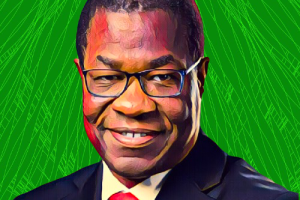India’s Minister of External Affairs Subrahmanyam Jaishankar representing his country at the opening of the 77th General Assembly made it a point to highlight that India is celebrating 75 years of independence, which he described as a story of “toil, determination, innovation, and enterprise of millions of ordinary Indians”.
In his first speech at the United Nations General Assembly as External Affairs Minister, Jaishankar portrayed India as a country, “prepared to take up greater responsibilities”.

Jaishankar also outlined India’s commitment to helping its neighbouring countries during times of need where India has provided supplies of 50,000 metric tonnes of wheat and multiple tranches of medicines and vaccines sent to Afghanistan, the extension of $3.8 billion worth of credit to Sri Lanka for fuel, essential commodities and trade settlement, and the supply of 10,000 metric tons of food aid and vaccine shipments to Myanmar.
He noted that in the current turbulent environment, it is the “more voices of reason” that the world pays attention to and “more acts of goodwill”. “India is willing and able on both counts.“
“Even as we meet our own development targets, India offers partnerships to our brothers and sisters in Asia, in Africa and Latin America. And we do so based on their needs and their priorities,” he added.
He went on to note that India is on the side of those struggling to make ends meet, even as they stare at the escalating costs of food, of fuel and fertilizers. Therefore, he called on the international community to work constructively, both within the United Nations and outside, in finding an early resolution to this conflict.
Noting that the COVID-19 pandemic has called into question the over-centralized nature of globalization, Jaishankar said that the world is poised for “transformational change”. The war in Ukraine and climate events have also, he continued, added to the disruption the world is already facing.
The Minister emphasized India’s commitment to a multi-stakeholder approach which was evident in India’s vaccine delivery to over 100 countries, disaster relief and partnerships with other countries focused on green growth, improved connectivity, digital distribution, and affordable healthcare.
The Indian External Minister emphasized that year 2022 is an important milestone in India’s journey towards growth, development and prosperity.
“India is celebrating 75 years of its independence and noted that they are doing so in a democratic framework, whose steady progress is reflected in more authentic voices and grounded leadership.
Jaishankar said that this ‘New India’, under the visionary and dynamic leadership of Prime Minister Narendra Modi, is a confident and resurgent society with its agenda for the next centenary will be achieved through the five pledges that the country has committed to on Independence Day. Outlining these five pledges he said, “One, we are resolved to make India a developed country in the next 25 years. For the world, that creates more capacities for global good.
Two, we will liberate ourselves from a colonial mind-set. Externally, this means reformed multilateralism and more contemporary global governance.
“India is on the side of peace and will remain firmly there,” he said. “We are on the side that respects the UN Charter and its founding principles. We are on the side that calls for dialogue and diplomacy as the only way out”.
India will end its term as a non-permanent member of the UN Security Council in 2022 and during India’s term they have acted as a bridge on some serious but divisive issues confronting the Council. “We have also focused on concerns such as maritime security, peacekeeping and counter terrorism,” he added.
Therefore, he called for serious negotiations on the matter to be decisively addressed, and for serious negotiations to proceed sincerely, rather than being blocked by procedural tactics.
India’s External Affairs Minister also took a shot at some Asian countries for failing to blacklist terrorists.
The call for reformed multilateralism – with reforms of the Security Council at its core – enjoys considerable support among UN members, Jaishankar noted.
“It does so because of the widespread recognition that the current architecture is anachronistic and ineffective. It is also perceived as deeply unfair, denying entire continents and regions a voice in a forum that deliberates their future.
India is prepared to take up greater responsibilities. But it seeks at the same time to ensure that the injustice faced by the Global South is decisively addressed.”
Source:http://www.dailynews.lk/




















Add Comment